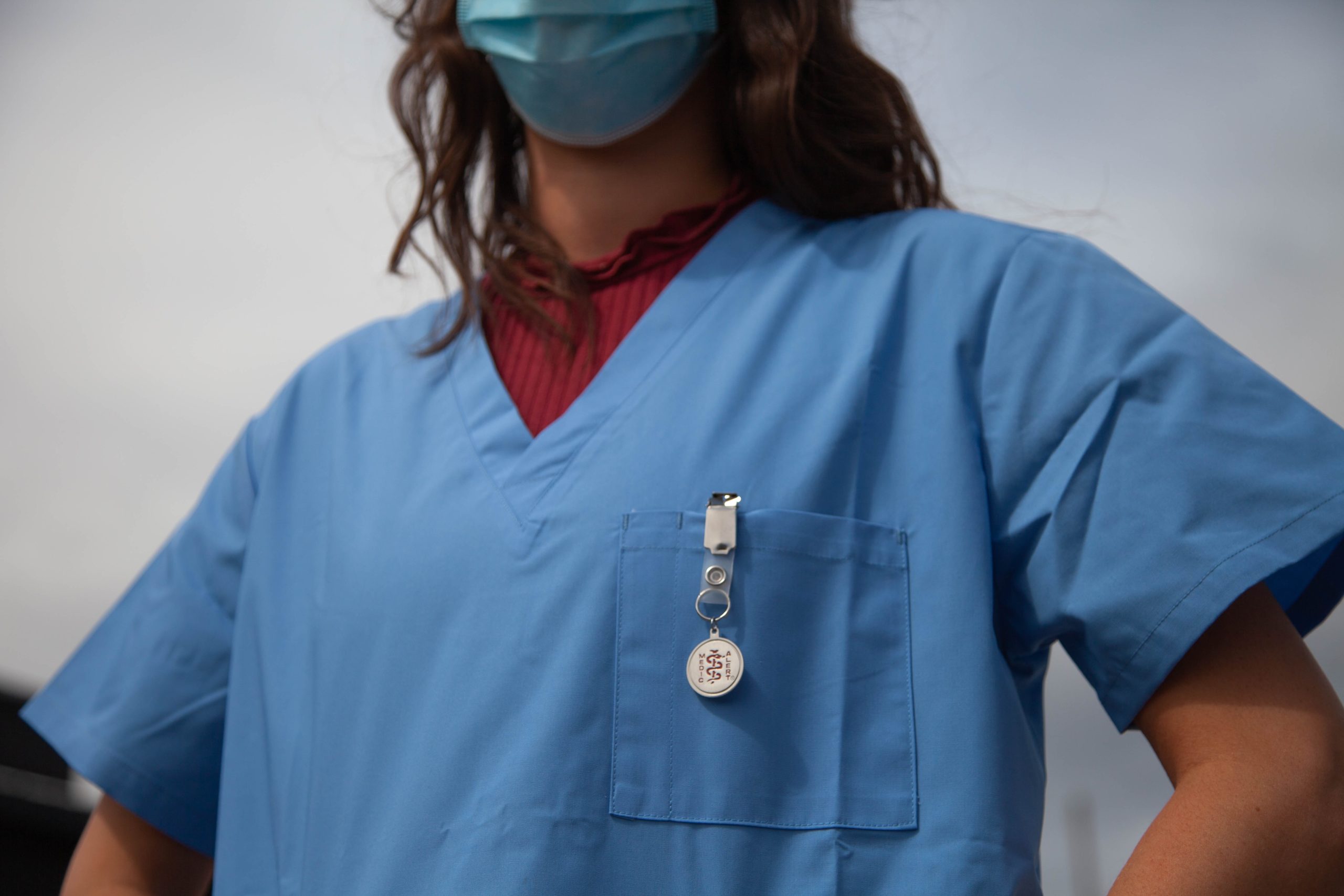5 things nurses want you to know this International Nurses Day
 Image via Unsplash
Image via Unsplash
5 things nurses want you to know this International Nurses Day
Words: Eva O’Beirne
Up the nurses.
It’s no secret that healthcare staff kept the country going during the pandemic. District caught up with two nurses, William and Sophie to see what life has been like post-lockdown and what the general public should know about their jobs.
- The media isn’t exaggerating the short-staffing crisis
This issue is one of the first brought up by Sophie, a recent nursing graduate. To student and veteran nurses alike, overtime and volunteering for extra shifts is normal. William also highlighted the staffing issues, noting that many staff don’t feel safe anymore while at work.
The Irish Nurses and Midwives Organisation has recently reported that Irish nurses and midwives are dealing with an increasing amount of physical, verbal and sexual assaults in the workplace. Since the beginning of 2021, over 3,416 nurses have been assaulted – an average of seven assaults per day.
- They’re doing their best
William, a third-year nursing student, describes how harrowing the pandemic was as a first-year: “We were all exposed to so much, too quickly. I cleaned around 20, 25 bodies, which nurses aren’t expected to do normally. I’ve been on wards where it will be three nurses looking after everyone including myself, a student.”
“We are trying our best but sometimes we feel so overwhelmed with six or more sick patients, we end up having to prioritise care. I wish I had more time to give the proper care I signed up to give,” said Sophie on the current state of hospitals in Ireland.
- Most students are looking to emigrate as soon as they graduate
Between the rising cost of living, lack of benefits and barely any pay, the majority of Irish nurses are looking to emigrate or move into a different career once they finish their undergraduate degrees. Both William and Sophie agree that they’re looking into alternative routes of employment as student nurses have witnessed some of the worst elements of the Irish health service.
William cited burnout as a major issue for undergraduates as many students have to balance their placements with working part-time. Student nurses are given a grant equivalent to a hundred euro a week, which works out around three euro per hour. They have no say in what hospitals they work in for their placement, and so can end up on the other side of the country.
Despite working three days a week, Sophie noted how nurses never really get to live their lives to the fullest: “Three days a week sounds lovely until you realise it’s 12/13 hour shifts non-stop so for your days off you just spend it catching up on sleep.”
According to William, student nurses are allocated one week of Covid-19 leave per year. If they miss any more days, they have to work random shifts during the summer to finish their degrees. For William, the bureaucracy and lack of organisation for student nurses is another area of frustration.
- Covid hasn’t stopped for them
You might realise that you have no idea how many Covid-19 cases were reported today. And you’re not the only one. According to William, the world has moved on from Covid, but the interior of hospitals have not. “People still get very upset when we remind them about masks and restrictions, but case numbers are high, outbreaks in hospitals are still too common and we’re trying to keep their families safe,” William explains.
William also addresses the abuse that student nurses would receive from staff and patients alike throughout the pandemic, due to the narrative that students were largely responsible for outbreaks: “I remember one of my close friends caught covid and had to ring in sick to the hospital. And the supervisor replied, “well you’ve clearly been going to house parties”. She hadn’t and she was so upset for being accused like that. No one should be spoken to that way.”
- Don’t be shy, they’ve seen everything
Being in hospital, especially on your own can be a worrying time and it’s very easy to feel self-conscious. But don’t overthink it, and don’t be embarrassed advised Sophie. “We’ve seen almost everything so please don’t be shy regarding bodily fluids and body parts,” she explained. “We understand it can be a vulnerable time for you but you’re comfort and health is our priority.”
Speaking up is key to feeling safe according to Sophie. “If you don’t feel comfortable with a student trying something on you like blood taking, please be honest, we won’t be offended. The same goes with being upfront and honest with your medical history. We’re not here to judge we just want to ensure we’re giving optimal care in recognition of your individual care needs.”
Elsewhere on District: MIKA and Derry Lipa: Everything you need to know about Ireland at Eurovision 2022